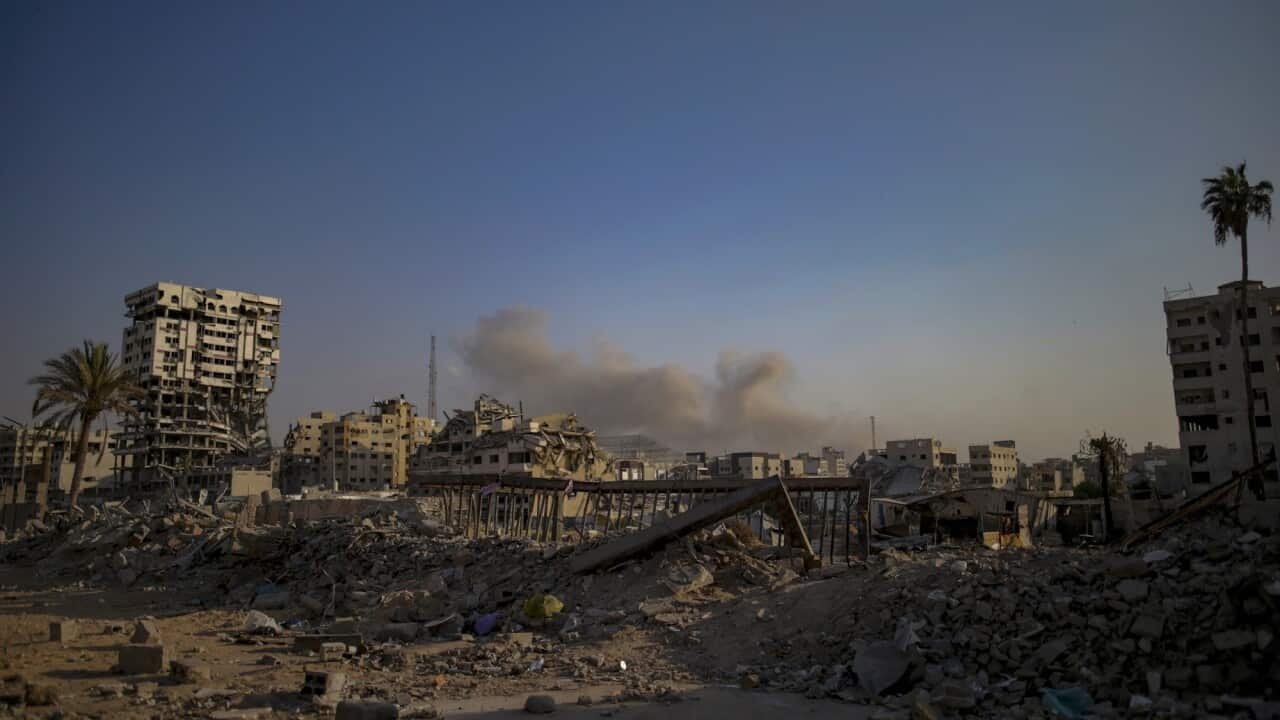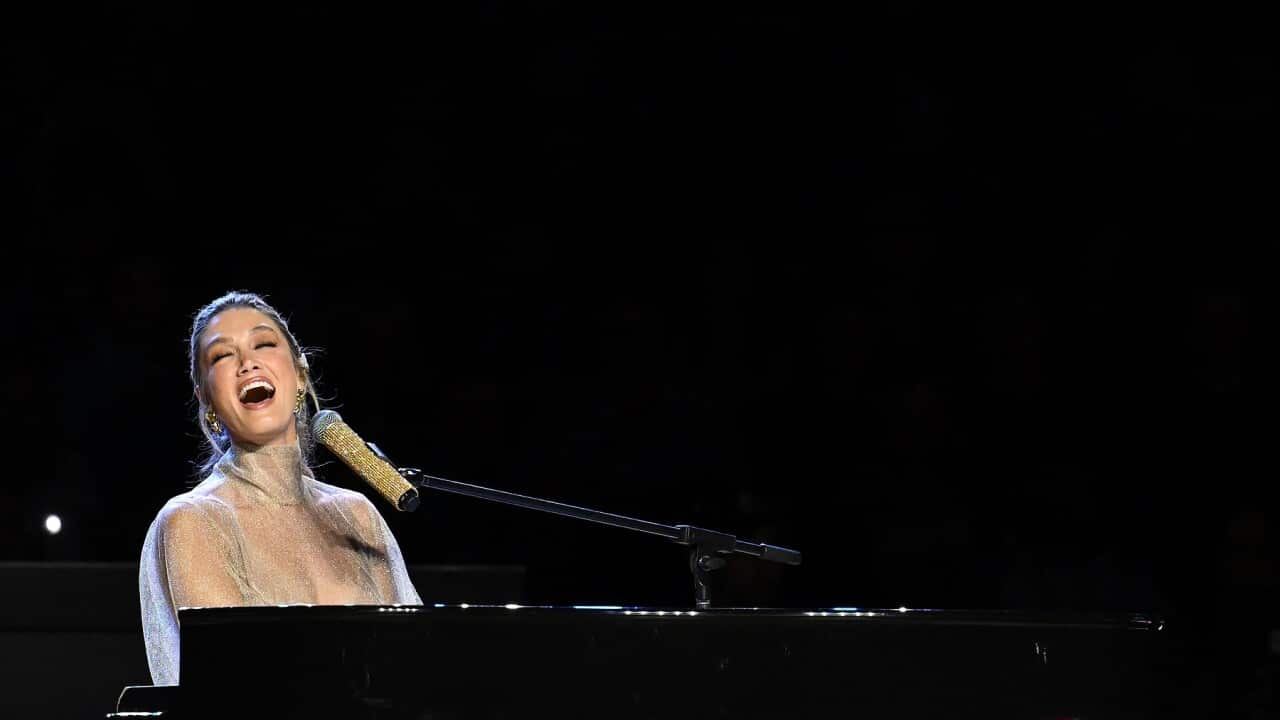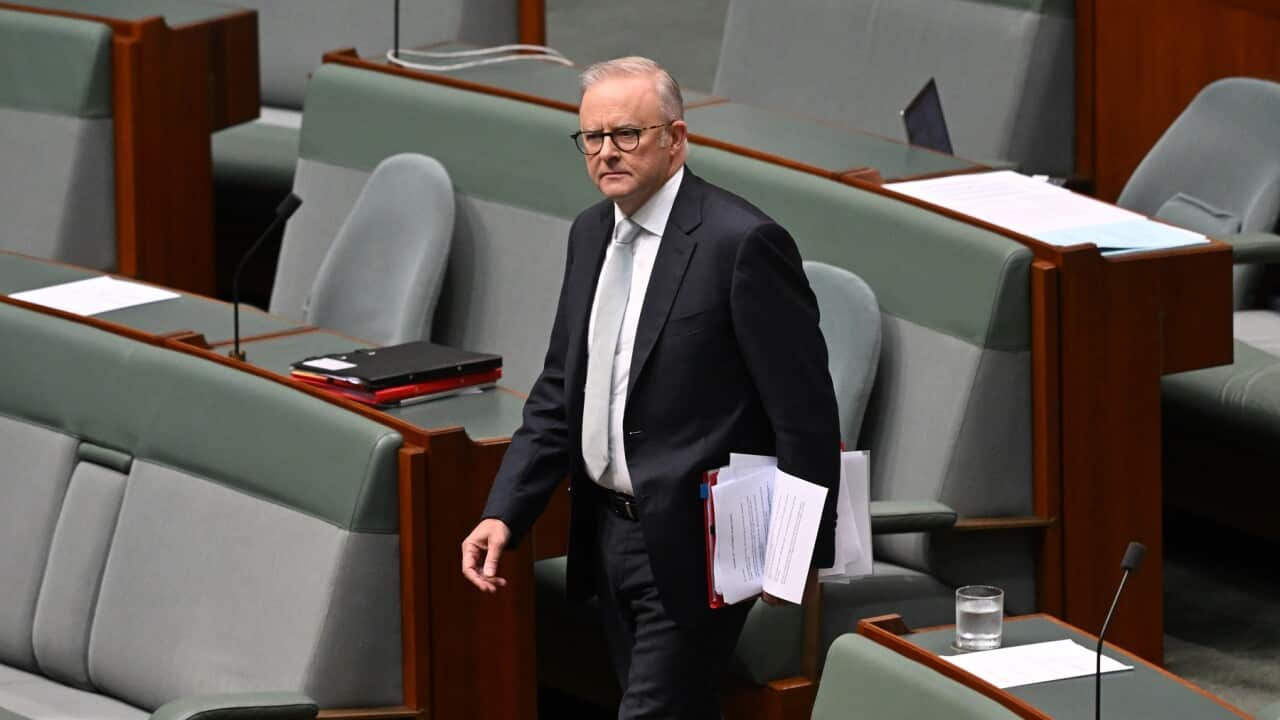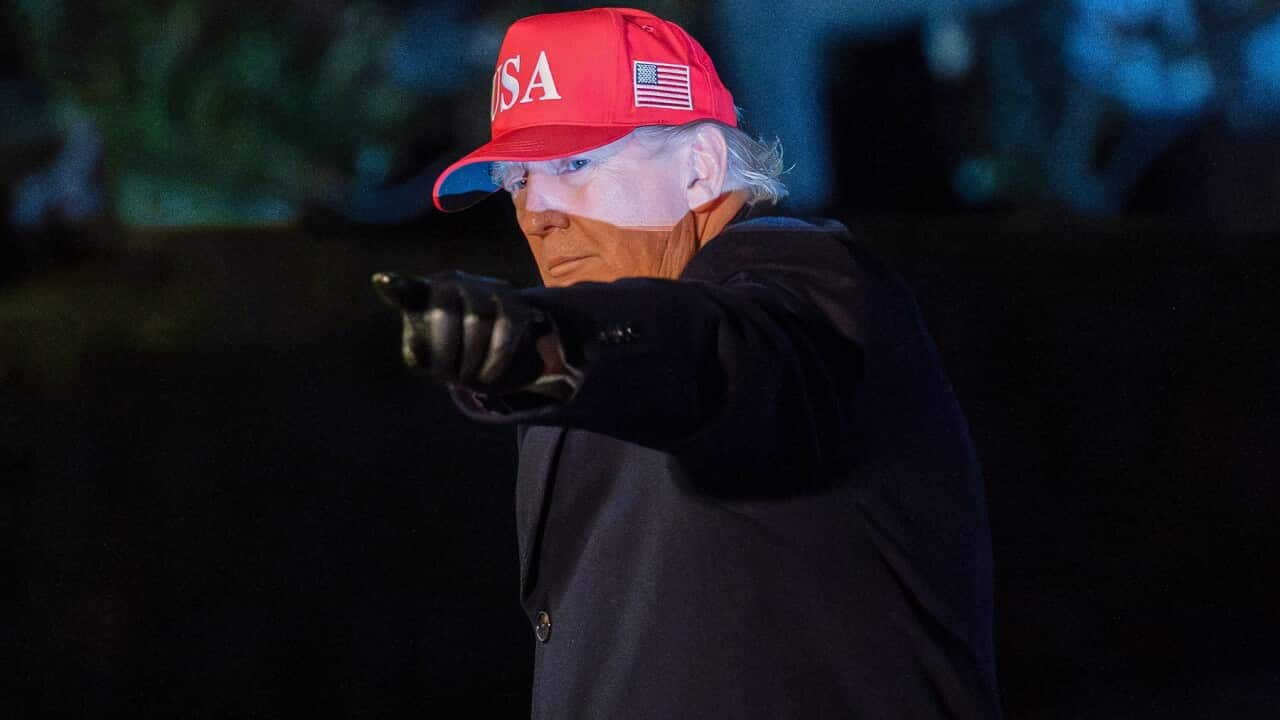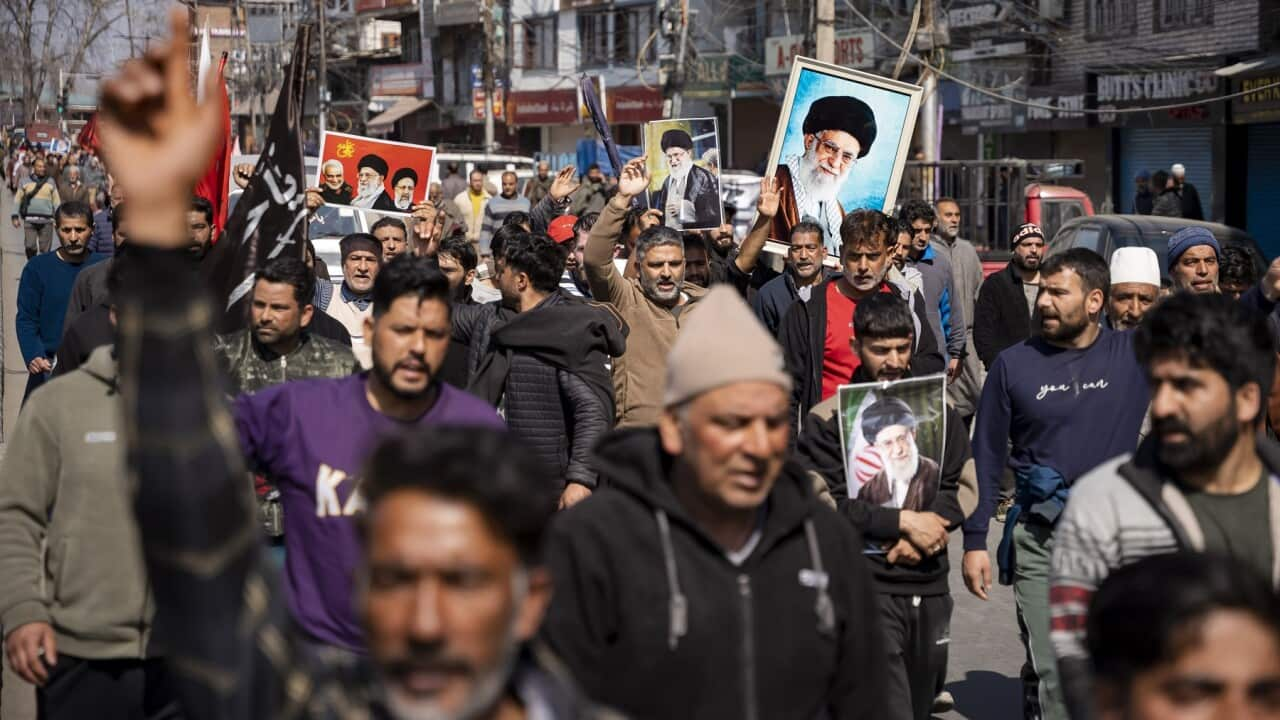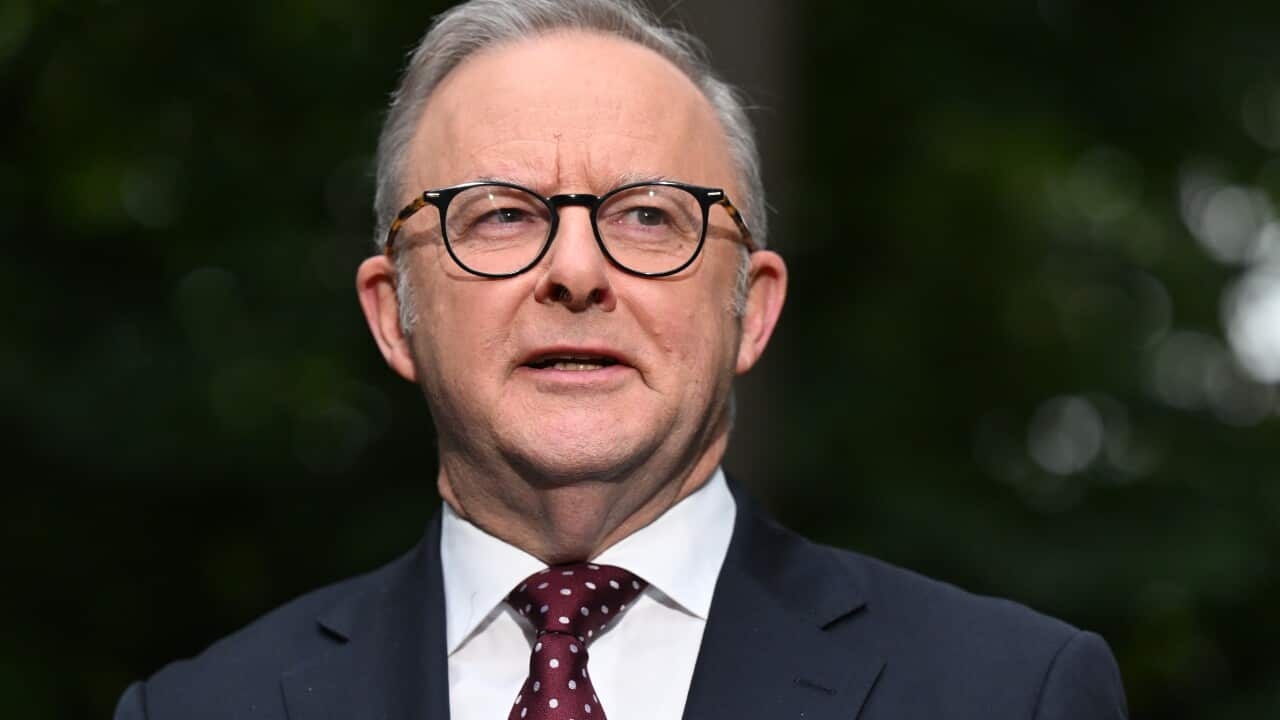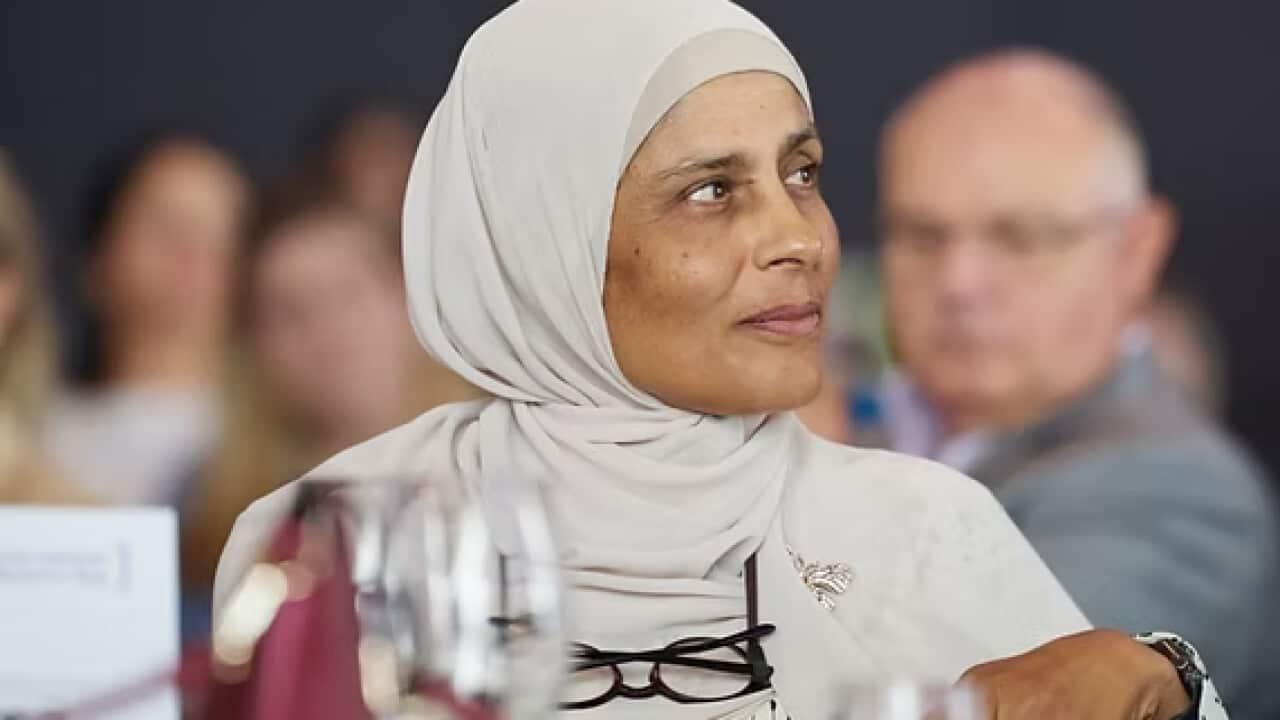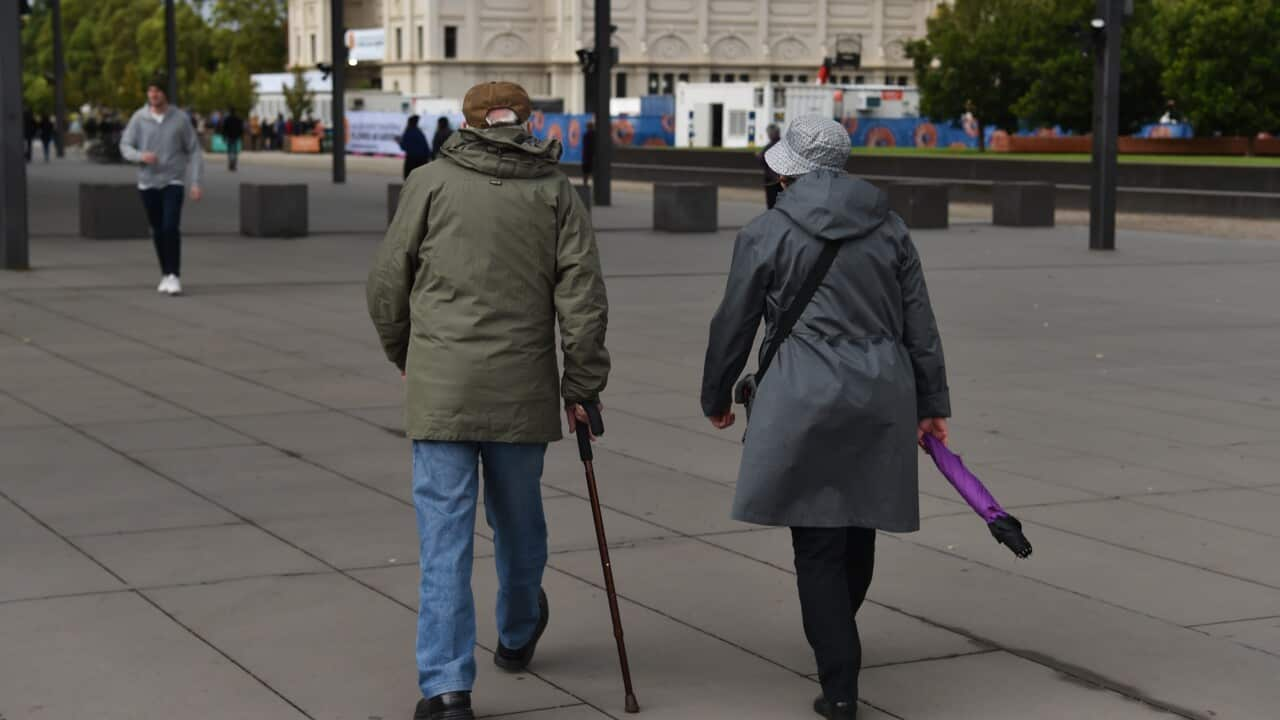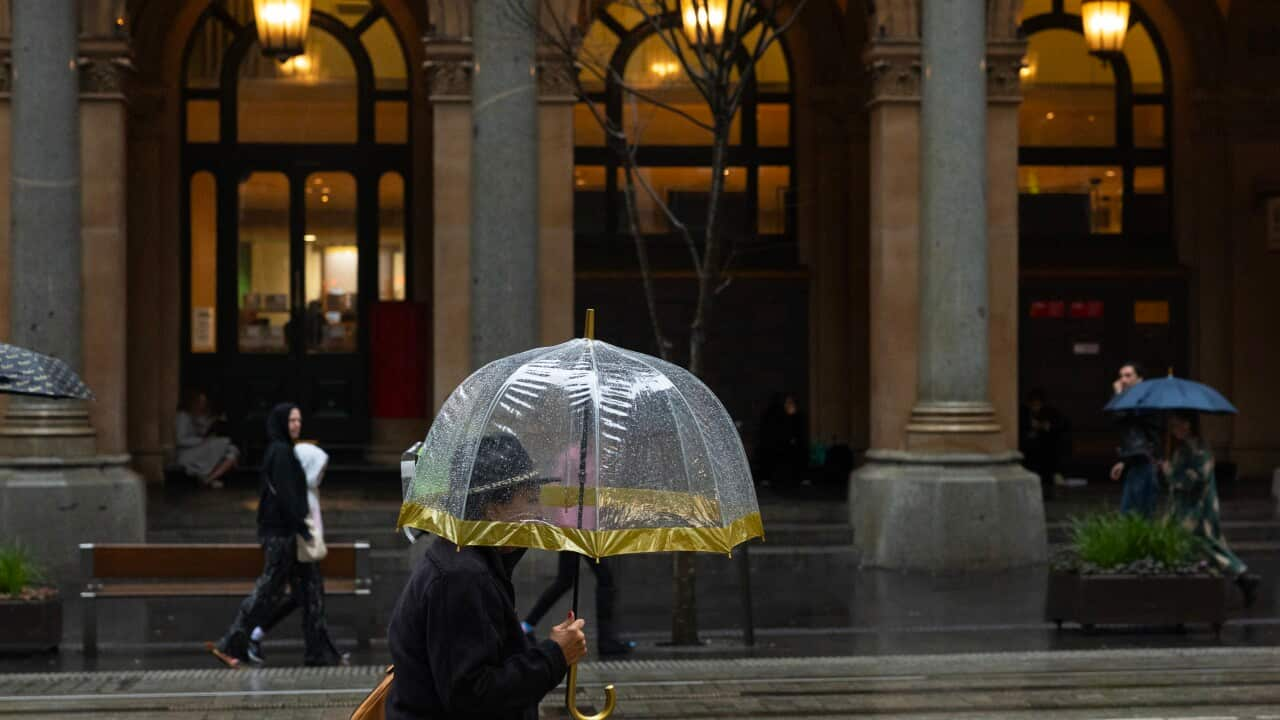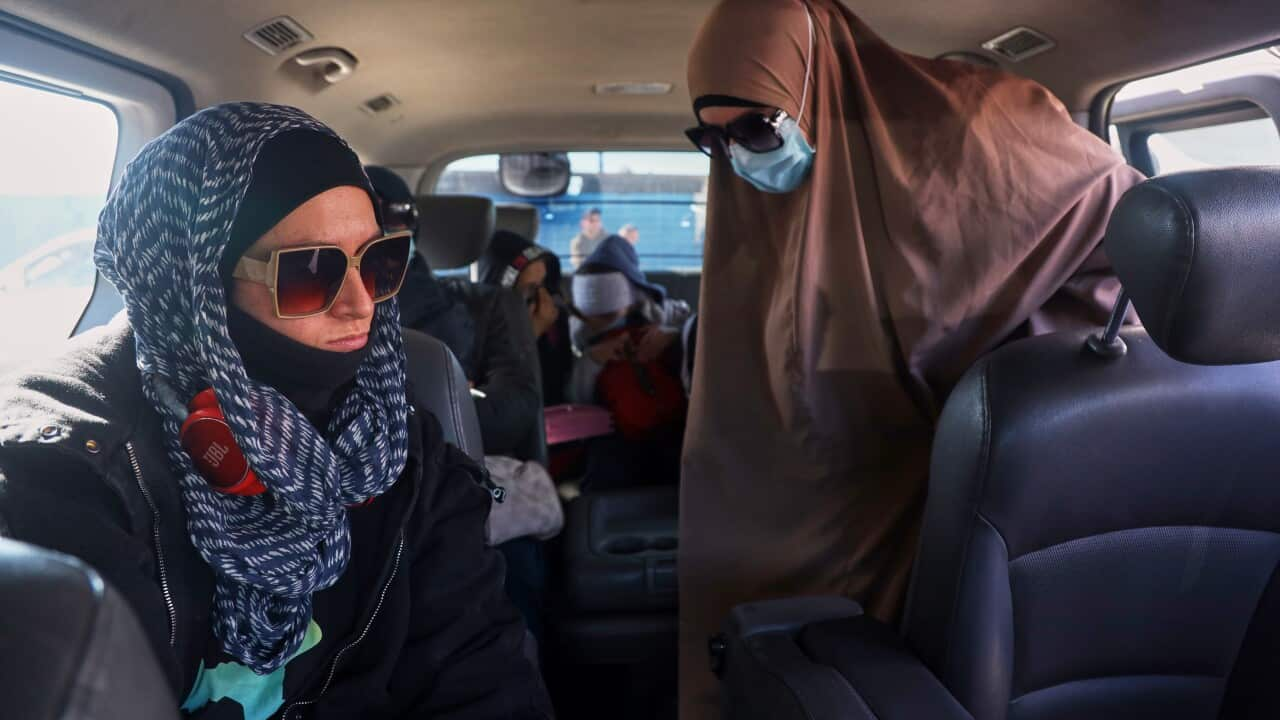Listen to Australian and world news, and follow trending topics with SBS News Podcasts.
TRANSCRIPT
Health authorities in Gaza say the death toll in the besieged enclave has now risen to more than 65,500, with over 167,000 injured since the war began nearly two years ago.
That includes 83 Palestinians killed in the last 24 hours.
Seven of those were killed while waiting for food at aid distribution centres.
(Sound of cries of distress)
Israeli human rights group B’Tselem says that since May, over 2,500 people have been killed while seeking aid, fuelling criticism of the humanitarian system backed by the United States and Israel.
This comes as the Israeli military says it has dismantled a Hamas stronghold in Gaza City and recovered large caches of weapons.
Spokesman Brigadier General Effie Defrin says another Hamas fighter involved in the 7th of October attack against Israel was killed.
Hamas has not commented.
Brigadier General Defrin says Israel’s air force is hitting targets every day inside Gaza in support of its ground operations.
"The Air Force is assisting ground forces, and striking fiercely around 200 terrorist targets per day using fighter jets, unmanned aerial vehicles, and helicopters, next to the forces and in an unprecedented manner. Alongside the expansion of combat operations, we are continuing the humanitarian and civilian effort to evacuate the population from Gaza for their protection. So far, approximately 700,000 residents of Gaza City have evacuated to humanitarian zones in the southern part of the Strip."
Israel’s campaign has also extended deep into Yemen.
"Just in the past few hours, tens of fighter jets completed waves of strikes, a wide-scale strike against military targets in the Sana'a area that is in the depth of Yemen. We struck the command headquarters of the Houthi’s General Staff, compounds, and additional military camps belonging to the security and intelligence apparatus. We will continue to act with force against the terrorist Houthi rule."
Witnesses in Sana’a confirmed that Israeli jets struck parts of the capital, killing at least two people.
On Wednesday, a drone fired from Yemen breached Israel's missile defences and wounded 22 people in the Israeli port city of Eilat.
While the fighting rages and the death toll mounts, Palestinian political leaders are signalling what they see as a way forward after the war.
Palestinian Authority President Mahmoud Abbas addressed the United Nations General Assembly by video link from Ramallah.
He accused Israel of waging what he called a war of genocide that he says has killed and wounded more than 220,000 Palestinians.
But he also condemned Hamas’s 7th of October attack in Israel that triggered this latest escalation.
"Despite all what our people have suffered, we reject what Hamas carried out on the 7th of October, these actions that targeted Israeli civilians and took them hostages because these actions do not represent the Palestinian people nor do they represent their just struggle for freedom and independence."
He insists the group must have no role in Gaza’s future.
"We have affirmed, and we will continue to affirm, that the Gaza Strip is an integral part of the state of Palestine and that we are ready to bear full responsibility for governance and security there. Hamas will not have a role to play in governance. Hamas and other factions will have to hand over their weapons to the Palestinian National Authority."
President Abbas called for an immediate and permanent ceasefire, the release of all hostages and prisoners, and a full Israeli withdrawal from Gaza.
His remarks come as the future of the United Nation’s main refugee agency for Palestinians is debated.
The agency is mostly funded by voluntary contributions from UN member states, and the need for more funds has grown after the US cut funding.
UN Secretary-General Antonio Guterres says the UN agency for Palestinian refugees, UNRWA, remains a cornerstone of stability in the Middle East.
"UNRWA is a force for stability in the most unstable region of the world. Its operational presence contributes to the Palestinian Authority's governance in the West Bank, to Lebanon's efforts to fulfill requirements for a ceasefire in refugee camps, to Syria's efforts to navigate the path to lasting peace, and to Jordan's role in building regional stability. UNRWA's mandate and operations are integral to a large majority of the actions outlined in the New York Declaration endorsed by the General Assembly earlier these months."
He says the agency is struggling to operate.
"In Gaza, our staff are being killed, our premises destroyed. And everywhere, UNRWA faces budget shortfalls and the firehose of disinformation. Earlier this year, I commissioned a strategic assessment of the impact and exercise of UNRWA's mandate under current circumstances."
Mr Guterres says until a political settlement is achieved, the agency remains vital for millions of Palestinian refugees.
Jordan, Spain and Brazil co-chaired a high-level meeting in New York to raise funds for UNRWA, with Spain pledging to donate A$268 million by 2026.
